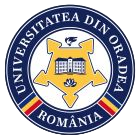PUBLICATION ETHICS AND PUBLICATION MALPRACTICE STATEMENT(based on COPE's Best Practice Guidelines for Journal Editors)Ethical guidelines for journal publication
The Journal of Computer Science and Control Systems (JCSCS) is committed to ensuringethics in publication and quality of articles. Conformance to standards of ethicalbehavior is therefore expected of all parties involved: Authors, Editors, Reviewers,and the Publisher.
In particular,
Authors: Authors should present an objective discussion of the significance of theirresearch work as well as sufficient detail and references to permit others toreplicate the experiments. Fraudulent or knowingly inaccurate statements constituteunethical behavior and are unacceptable. Review articles should also be objective,comprehensive, and accurate accounts of the state of the art. The authors shouldensure that their work is entirely original work, and if the work and/or words ofothers have been used, this has been appropriately acknowledged. Plagiarism in allits forms constitutes unethical publishing behavior and is unacceptable. Submittingthe same manuscript to more than one journal concurrently constitutes unethicalpublishing behavior and is unacceptable. Authors should not submit articlesdescribing essentially the same research to more than one journal. The correspondingauthor should ensure that there is a full consensus of all co-authors in approvingthe final version of the paper and its submission for publication.
Editors: Editors should evaluate manuscripts exclusively on the basis of theiracademic merit. An editor must not use unpublished information in the editor's ownresearch without the express written consent of the author. Editors should takereasonable responsive measures when ethical complaints have been presentedconcerning a submitted manuscript or published paper.Reviewers: Any manuscripts received for review must be treated as confidentialdocuments. Privileged information or ideas obtained through peer review must be keptconfidential and not used for personal advantage.
Reviews should be conductedobjectively, and observations should be formulated clearly with supportingarguments, so that authors can use them for improving the paper. Any selectedreferee who feels unqualified to review the research reported in a manuscript orknows that its prompt review will be impossible should notify the editor and excusehimself from the review process. Reviewers should not consider manuscripts in whichthey have conflicts of interest resulting from competitive, collaborative, or otherrelationships or connections with any of the authors, companies, or institutionsconnected to the papers.
Publication Ethics and Publication Malpractice Statement
- Detalii
- JCSCS
- Accesări: 2591


 Str. Universității nr. 1, Oradea
Str. Universității nr. 1, Oradea